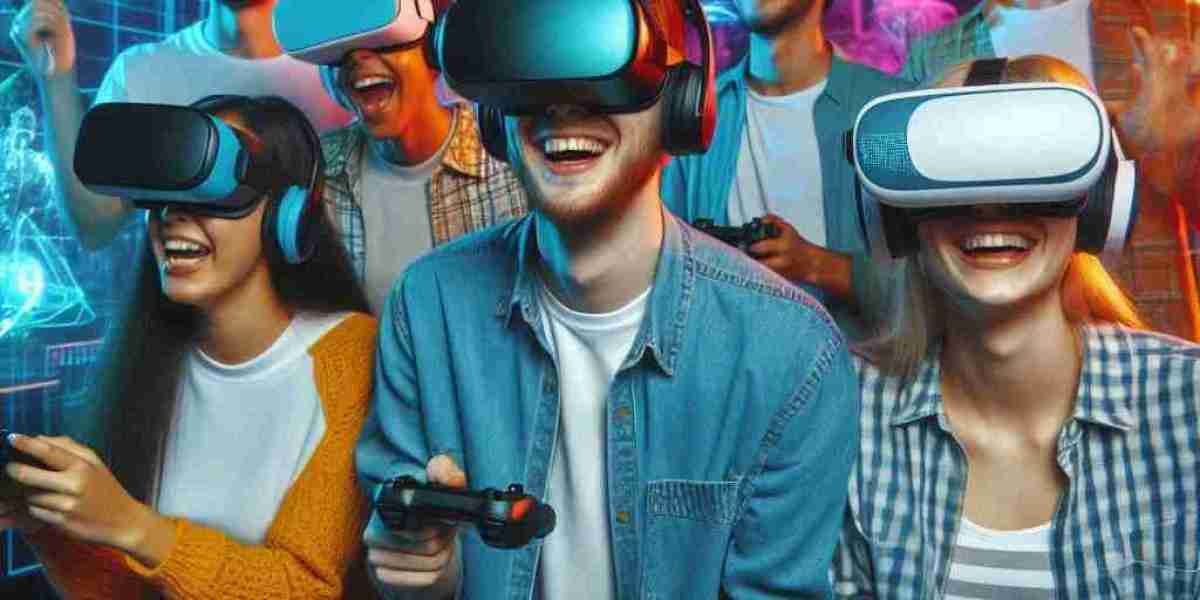Virtual Reality (VR) is no longer a concept confined to the realms of science fiction. It has emerged as a transformative technology, reshaping industries, redefining entertainment, and offering new ways to experience the world. In this blog, we will explore the multifaceted impact of VR, from its technological advancements to its applications across various fields.
The Evolution of VR Technology
VR technology has come a long way since its inception. The early iterations, characterized by bulky headsets and rudimentary graphics, have evolved into sophisticated systems offering immersive experiences. Key advancements include:
- Improved Hardware: Modern VR headsets like the Oculus Quest 2 and HTC Vive Pro 2 offer high-resolution displays, wider fields of view, and reduced latency, enhancing the sense of immersion.
- Advanced Tracking Systems: Precision tracking of head and hand movements enables more natural interactions within virtual environments.
- Wireless Technology: The shift to wireless headsets has eliminated the tethered experience, providing greater freedom of movement.
Applications of VR
VR's versatility allows it to be applied across various domains, each benefiting from its unique capabilities.
Entertainment and Gaming
- VR has revolutionized the gaming industry, offering players immersive environments and interactive gameplay. Games like "Beat Saber" and "Half-Life: Alyx" showcase the potential of VR to create compelling and engaging experiences.
Education and Training
- VR provides an interactive and immersive learning environment, making education more engaging and effective. Medical students, for instance, can perform virtual surgeries, gaining practical experience without the risks associated with real-life procedures.
Healthcare
- VR is being used for pain management, physical therapy, and mental health treatment. Patients can engage in virtual environments that help distract from pain or simulate real-world scenarios to aid in rehabilitation.
Real Estate
- Virtual tours allow potential buyers to explore properties remotely, providing a realistic sense of space and layout without the need for physical visits.
Work and Collaboration
- With the rise of remote work, VR offers new ways for teams to collaborate. Virtual meetings and workspaces can foster a sense of presence and interaction that traditional video calls lack.
Travel and Tourism
- VR can transport users to distant locations, offering virtual travel experiences. This can be particularly valuable for individuals with physical limitations or during times when travel is restricted.
The Future of VR
The future of VR is bright, with ongoing advancements poised to expand its capabilities and accessibility. Here are some trends to watch:
- Enhanced Realism: Continued improvements in graphics and haptic feedback will make virtual experiences indistinguishable from reality.
- Integration with AI: AI can enhance VR by creating more responsive and adaptive virtual environments, personalizing experiences based on user interactions.
- Wider Adoption: As VR technology becomes more affordable and user-friendly, its adoption will likely spread beyond niche markets to mainstream use.
Challenges and Considerations
Despite its potential, VR faces several challenges that need to be addressed:
- Accessibility: Ensuring that VR technology is accessible to all, including individuals with disabilities, is crucial for its widespread adoption.
- Health and Safety: Prolonged use of VR can lead to motion sickness and eye strain. Developers must continue to find ways to minimize these effects.
- Ethical Concerns: As VR blurs the line between reality and virtuality, ethical considerations regarding privacy, data security, and the psychological impact of immersive experiences must be taken into account.
Conclusion
Virtual Reality is more than just a technological novelty; it is a powerful tool with the potential to transform various aspects of our lives. From entertainment and education to healthcare and beyond, VR is opening up new possibilities and redefining our interactions with the digital world. As technology continues to evolve, so too will the ways in which we harness the power of VR, making it an integral part of our future.









